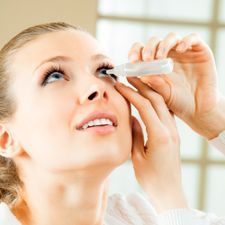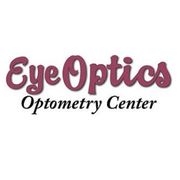
Because May is National Asthma and Allergy Awareness month, it’s a perfect time to learn more about the distinction between eye allergies and dry eye. While dryness can be a symptom of ocular allergies, it can also be a condition on its own. If you experience frequent problems related to dry eye and do not wear contacts, visit your optometrist to rule out another condition.
What Is Dry Eye?
Your tears are responsible for cleaning, protecting, and moisturizing your eyes. However, tears are not simply made from water; they are a combination of mucin, water, and lipids. If your eye does not produce the right amount of these components—either too little or too much of one—then you may experience dry eye. If you notice a stinging or burning in the eye, stringy mucus, sensitivity to light or redness, you may not be producing sufficient tears to moisturize your eyes. This results in dry eye and can cause extended discomfort if not evaluated by an optometrist.
What Are Ocular Allergies?
 Allergies can also present symptoms similar to dry eye, including redness and a change in tear production. The largest difference between the two conditions is itching, which is primarily observed with allergies and not dry eye. Because allergies are caused by external irritants, the body produces histamines to fight this invader, which leads to itchiness, inflammation, and swelling.
Allergies can also present symptoms similar to dry eye, including redness and a change in tear production. The largest difference between the two conditions is itching, which is primarily observed with allergies and not dry eye. Because allergies are caused by external irritants, the body produces histamines to fight this invader, which leads to itchiness, inflammation, and swelling.
How Are They Treated?
Solutions for dry eye and allergies are different, which is why it’s important to visit your optometrist for diagnosis. When treating dry eye, you’ll use tear lubricant to reduce inflammation and stimulate Meibomian glands, which regulates moisture. If your symptoms are caused by allergies, the optometrist will recommend an antihistamine or stabilizer to reduce itching and swelling, and they will also recommend lubricating drops to keep eyes clean and moisturized.
If you’re experiencing symptoms of dry eye but aren’t sure if it’s due to allergies, visit the team at EyeOptics Optometry Center in Elk Grove, CA. In addition to treating common conditions related to ocular health, the optometrists on staff can assess vision loss and recommend the best prescription to treat your specific needs. To learn more about their clinic, visit them online, and call (916) 684-6688 to schedule an appointment.
About the Business
Have a question? Ask the experts!
Send your question

